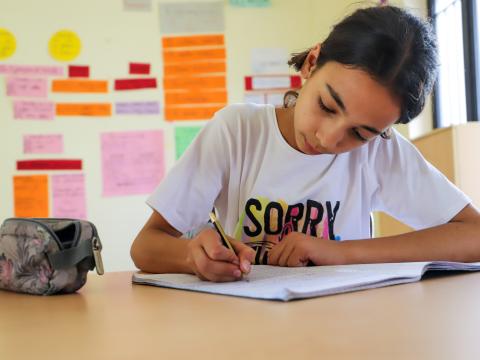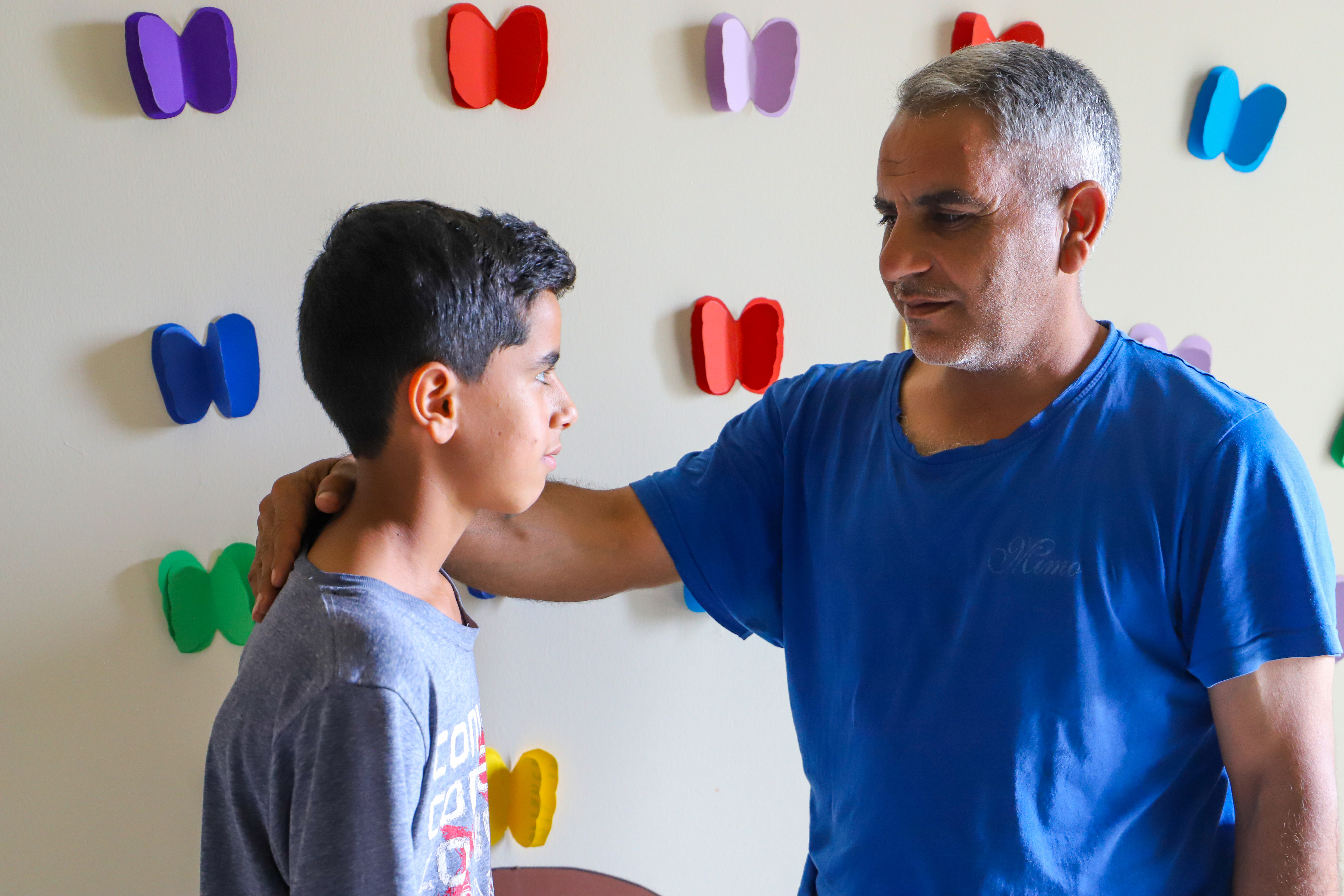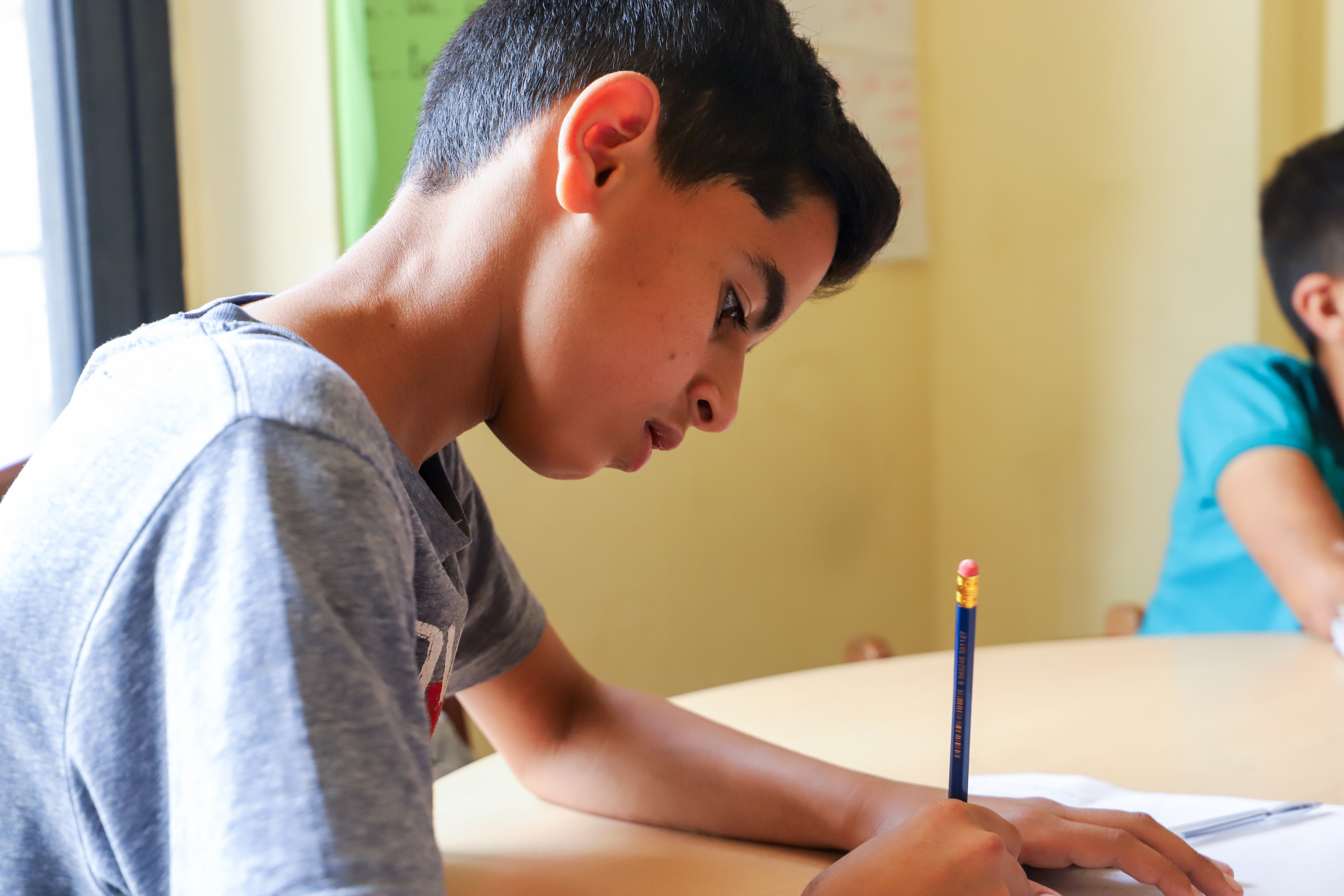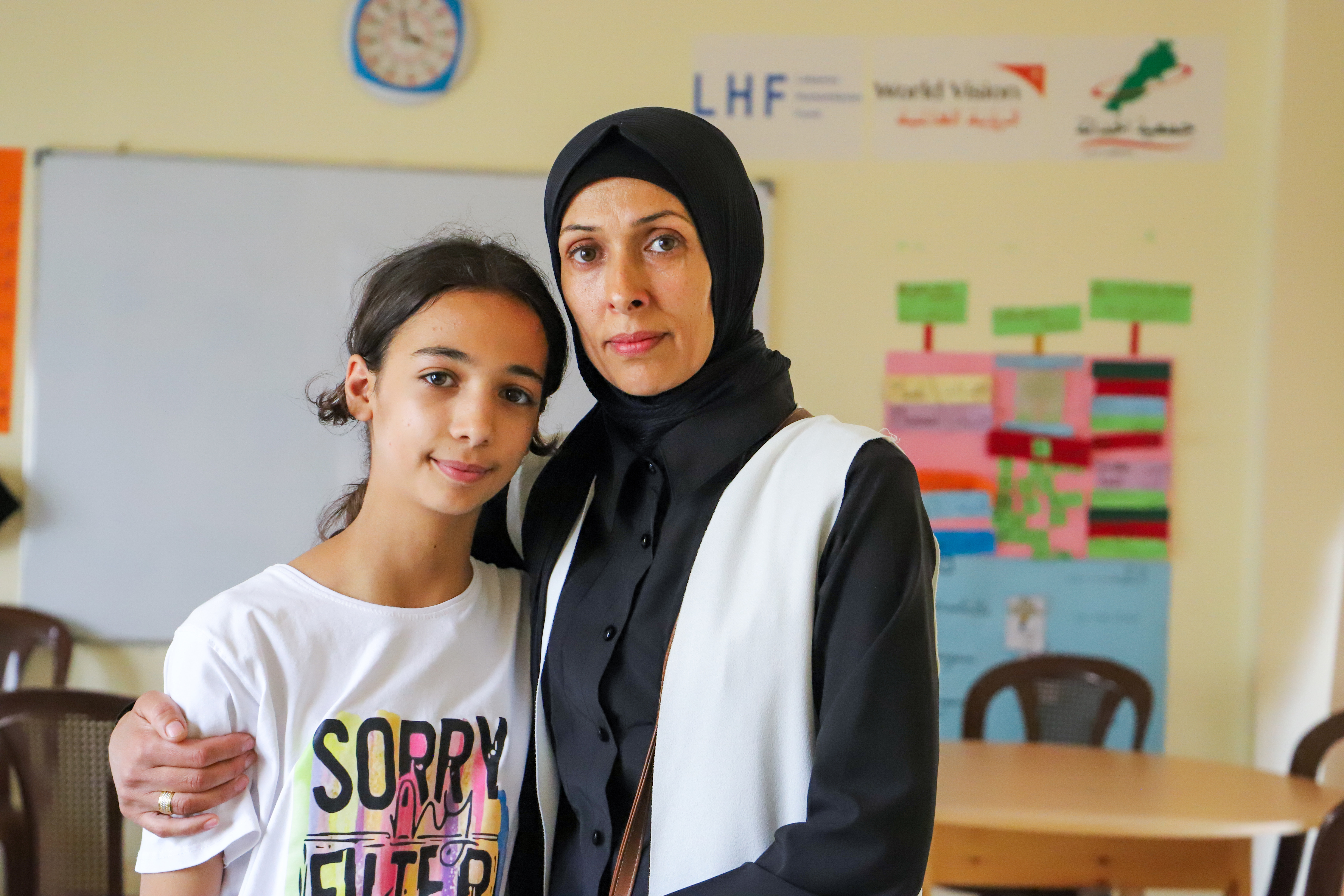Falling back in love with education

The impact of the never-ending crisis in Lebanon on children is devastating. They are surviving with the bare minimum; inadequate food provision, limited health care, increased protection risks and inability to attend schools or receive quality education.
Education is recognized by the United Nations Convention on the Rights of the Child as a legal right of every child. Yet, it remains a privilege for many. In Lebanon, Hundreds of thousands of Lebanese, Syrian, and Palestine refugees and migrants are left without education, while teachers are on the streets demanding their basic rights due to the collapse of the currency and the devaluation of their salaries.
"I always feel the burden of being illiterate. I will do whatever it takes to keep my children at school. I don't want them to end up like me," says thirty-nine-year-old Khaled. Life was not always fair with Khaled in the past decade. "We fled Syria at the start of the crisis 11 years ago. We lost our home, and soon after, we became refugees outside of our homeland."
Khaled and his family, currently living in Halba, north of Lebanon, escaped one crisis to face a multidimensional crisis later on. "When we first arrived, life was more stable. However, the past few years were very challenging due to the economic collapse and Covid-19," says the father of five. "I am a daily worker. I make around five million Lebanese pounds per month (around USD 50). Without the support I receive from the organizations, I wouldn't be able to feed my children, let alone keep them in school. They would have been forced to be working."

World Vision and the sub-implementing partner Hadatha, supported by the Lebanon Humanitarian Fund (LHF), are providing Lebanese and Syrian children in Halba and Wadi Khaled, Akkar, who are at risk of dropping out due to their poor academic performance results with retention sessions. This program focuses on providing these children with individualized learning support in major subjects of the Lebanese curriculum (Arabic language, foreign language, mathematics, science).
"Last year, I failed at school and sadly had to repeat my grade. This year I am doing much better thanks to the sessions," says twelve-year-old Mohammed, son of Khaled. "My grades are much better thanks to the support of teachers here at the centre. I believe I will be passing my class this year."

Mohammed's grades at school improved a lot after joining the retention program. In Arabic, his grade went from seven in the first semester to 13 over 20 in the second semester and in math, from nine to 12 over 20. "I am always excited whenever I come to the centre. The teachers know how to make us understand the subject. I didn't use to like to study, but now I love to study. I dream that one day I will be an army officer so I can protect my homeland."
Education is critical for the growth of any society – It helps the child navigate life and contribute to society once they become older. Quality education develops children's skills, judgment and reasoning; it also teaches them social norms while preparing them for a bright future.
"As a mother, it is important for me to see my children graduate. I don't want them to live a difficult life similar to us," says Ibtissam, mother of seven. "We are from Halba, Akkar, north of Lebanon. My husband is working at a bakery in Beirut. He comes and visits once every two weeks, so he doesn't spend most of his earnings on the road. This means the children are mainly my responsibility," says forty-three-year-old Ibtisam.
Shaymaa, Ibtisam's daughter, is very happy to be part of the retention program. "I took part in this program because I wasn't doing well in math. I was not able to properly understand my teachers back at school. Here, the teachers are very supportive. I learned how to be better at math; I am doing much better at school," says twelve-year-old Shaymaa.

Similar to Mohammed, Shaymaa's grades at school showed great improvement. In science, her grade went from eight in the first semester to 13 over 20 in the second semester and in math, from seven to 12 over 20. "Education is very important for me because it will help me overcome life's challenges. I want to graduate and become an air hostess so I can support my family," she reveals. "Teachers are very important to make the children passionate for learning and succeed at school; that's why we are doing better after joining the program."
With the support of the Lebanon Humanitarian Fund, this project helped 848 Lebanese and Syrian children take essential steps to get back on track with their education and the ability to dream of brighter future thanks to the retention program.